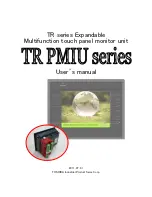
| 12
EN-Rev IM/GN-BM-EU/1.93 Copyright © August, 2021. CSI Solar Co., Ltd.
www.csisolar.com
The grounding method described below is
recommended for Canadian Solar.
GROUNDING METHOD: BOLT + TOOTHED NUT + CUP WASHER.
A grounding kit containing an M5 (3/16") SS cap bolt, an
M5 (3/16") SS flat washer, an M5 (3/16") SS cup washer,
and an M5 (3/16") SS nut (with teeth) is used to attach
copper grounding wire to a pre-drilled grounding hole
on the frame (see image above). The grounding holes
are located at the upper and lower edges of the long
side frame, close to the module short sides.
Mounting rail designs should be such to allow easy
access to the grounding holes located on the long side
of the frame, in order to enable the equipment
grounding function when required.
Place the wire between the flat washer and the cup
washer. Ensure that the cup washer is positioned
between the frame and the wire with the concave side
up to prevent galvanic corrosion. Tighten the bolt
securely using the SS toothed nut. A wrench may be
used to do this. The tightening torque is 3-7 Nm (2.2-5.2
ft-lbs).
6.0 MOUNTING INSTRUCTIONS
The applicable regulations pertaining to work
safety, accident prevention and securing the
construction site must be observed. Workers
and third party personnel shall wear or install fall arrest
equipment. Any third party need to be protected against
injuries and damages.
The mounting design must be certified by a registered
professional engineer. The mounting design and
procedures must comply with all applicable local codes
and requirements from all relevant authorities.
The loads described in this manual correspond to test
loads. For installations complying with UL 61730 and
IEC 61215-2:2016, a safety factor of 1.5 should be
applied for calculating the equivalent maximum
authorized design loads. Project design loads depend
on construction, applicable standards, location and
local climate. Determination of the design loads is the
responsibility of the racking suppliers and/or
professional engineers. For detailed information,
please follow local structural code or contact your
professional structural engineer.
Use appropriate corrosion-proof fastening materials.
All mounting hardware (bolts, spring washers, flat
washers, nuts) should be hot dip galvanized or stainless
steel.
Use a torque wrench for installation.
Do not drill additional holes or modify the module
frame. Doing so will void the warranty.
WHEN CLAMPS ARE USED AS FIXING MATERIAL
Install and tighten the module clamps to the mounting
rails using the torque stated by the mounting hardware
manufacturer. System designer and installer are
responsible for load calculations and for proper design
of support structure. It is recommended to use a torque
wrench for installation. Tightening torques must
respectively be within 16~20 Nm (11.8~14.75 ft-lbs) for
M8 x 1.25-Grade 8.8 (5/16”-18 Grade B7) galvanized or
A2-70 stainless steel coarse thread bolts, depending on
bolt class. The yield strength of bolt and nut should not
be less than 450 MPa.
To fix the wire between the
flat washer and cup washer,
place the cup washer
(concave side up) between
the frame and the wire.
Then tighten the bolt
using the toothed nut.













































